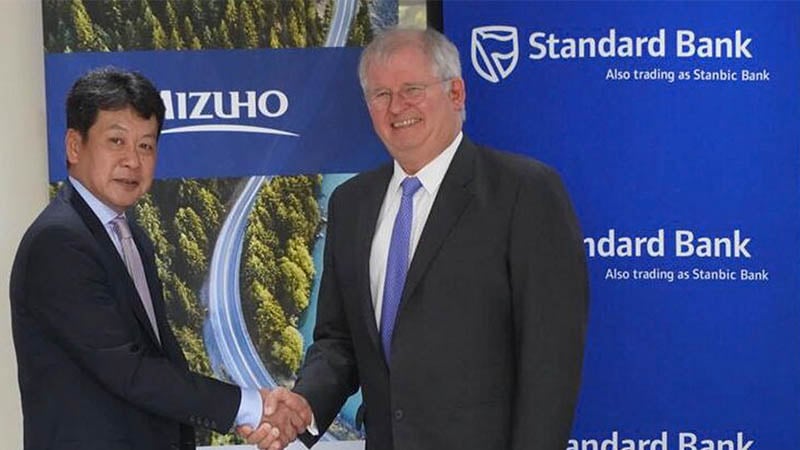
Tokyo International Conference on African Development (TICAD) 8 MoU agreement expands to include ESG standards
A perspective by Sasha Cook: Head, Investment Banking, Western Cape and Executive, Sustainable Finance
The Environmental, Social and Corporate Governance Sustainability MoU entered into between Standard Bank of South Africa Limited and Mizuho Bank Limited on 26 August 2022 at the TICAD-8 conference in Tunisia, provides an exciting platform to further strengthen the relationship between the two institutions.
Since entering into a Business Corporate agreement with Standard Bank in 2012, the partnership with Mizuho Bank has seen many landmark deals and legacy transactions throughout Africa. By expanding the agreement to include ESG standards, there will be a particular future focus on unlocking and mobilising sustainable finance opportunities in Africa.
The progression and maturation of this partnership completely aligns with Standard Bank’s goal to enable inclusive and sustainable economic growth in Africa.
With the development of sustainability frameworks within each organisation and further taxonomy development and convergence, we believe there is an exciting opportunity to unlock knowledge sharing, sharing of best practice to ultimately drive further collaboration and product innovation with a view to stimulate capital flow to support projects/spend across the continent with positive SDG impact, aligned to the sustainability strategies of each institution.
Africa is our home, we drive her growth. SBG’s sustainability strategy aligns with this purpose, to drive inclusive and sustainable economic growth in Africa and is based on two key pillars:
- achieving positive social, environmental and economic (SEE) impact linked to the UN SDGs, with a focus on seven impact areas aligned with core business activities; and
- upholding good ESG practices, doing business in a way that meets our responsibilities as a responsible corporate citizen.
We measure our ability to create shared value in terms of our six strategic value drivers – with SEE impact identified as one of these strategic value drivers.
The 7 SEE impact areas identified are set out below and align with the UN Principles for Responsible Banking (PRB), Paris Agreement, UN Sustainable Development Goals, South Africa NDP, Agenda 2063, and Nationally Determined Contributions in our countries of operation.
- Financial inclusion
- Job creation and enterprise growth
- Sustainable finance and climate change
- Infrastructure
- Africa trade and investment
- Education
- Health
In line with these impact areas, the group recently published its inaugural climate policy, confirming our ambition to support Africa’s fair contribution to 1.5 degrees and a Net Zero economy by 2050, with a continued focus on alleviating energy poverty across the continent and a Just Transition.
We see substantial opportunity arising for the continent as a result of this transition to lower carbon economies. In the South African context, the Just Energy Transition Partnership (JETP) is a ground-breaking initiative that came out of UNFCCC COP 26 in November 2021, to support South Africa’s pathway to a low carbon economy, a climate resilient society and helping to build a secure and sustainable electricity system. This partnership sees the EU, UK, US and Germany committing to an initial USD 8.5bn over the next three to five years, focusing on the power sector as well as green hydrogen and electric vehicles.
The Group’s climate policy also outlines complementary mechanisms that will be used to achieve our Net Zero ambition – combining policy implementation and targets to reduce our financed emissions as well as identification of sustainable finance opportunities culminating in a target of mobilising between R250-300bn of sustainable finance between 2022-2026, including a target of R50bn to finance renewable energy projects between 2022 and 2024.
We believe that partnerships, collaboration and knowledge sharing as envisaged by the MOU will help to accelerate the achievement of these targets, thereby fast-tracking the positive impact on economies and societies in the countries in which we operate.